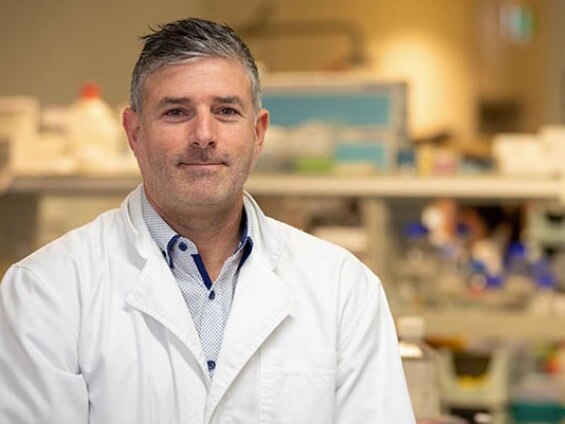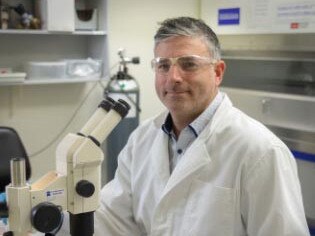University of Newcastle research has found RNA can have impacts on health of sperm and fertility
It’s not just the ladies that should look after their health when trying to conceive, new research has found men’s health is just as important, particularly looking at the health of sperm, to boost fertility.
Newcastle
Don't miss out on the headlines from Newcastle. Followed categories will be added to My News.
Researchers have strong message for men trying to conceive with their partner: Be responsible for the health of your sperm!
New research at the University of Newcastle has uncovered previously misunderstood effects that sperm RNA has on an embryo, not just the DNA being solely responsible for governing the traits offspring will have.
In fact, RNA can have the potential to change male fertility and play a critical role in embryo quality.
The research will also lead into ways sperm could be modified in a test tube before doing IVF.
“The take home message is that while we’re still trying to get data that might be able to inform health policy around this, one of our pieces of advice is it’s time for men to take a bit more of responsibility and think about their health preconception,” Dr Geoff De Luliis said.

Led by PhD candidate Natalie Trigg, the term of researchers are delving into the effects of environmental stressors on RNA, which could then have a detrimental effects or be lethal to the embryo.
The study has shown that common environmental factors, such as acrylamide – a chemical commonly found in small quantities in everyday foods such as toast and chips - PFAS contamination and wi-fi and mobile phone use, that have previously been shown not to effect DNA may, in fact, still have a role to play in reproduction due to the influence they have on RNA.
“This study opens up the concept that DNA damage is not the be-all and end-all. Perhaps the more subtle RNA changes are important to take note of also,” Dr De Luliis said.
“Over the last 50 years, some have suggested male fertility has been falling off a cliff. The quality of sperm is certainly going down and the fertility of humans is decreasing.
“Not a new idea, but perhaps what we’re seeing is that new environmental stressors that have come about over the past five decades are combining to compromise fertility.”
The study indicates it is changes in the RNA profile delivered to the sperm in the male tract that pass on the consequences of exposure.
“These exposures change the RNA species that are delivered to the sperm and that alters the genes that are ‘turned on’ in the resultant embryo,” he said.

“We are now understanding that sperm carry much more than just DNA, including an epigenetic payload, and changes after the sperm have left the protective environment of the testis have important consequences.”
Fortunately because of the nature of sperm production, it can be reversed quickly.
“Where a man is exposed, it only takes a week or two for the new sperm to be generated and those effects are completely removed,” Dr De Luliis explained.
Their conclusion that education is the next best thing to inform men that their preconception health should be in the spotlight just as much as women’s health
“They have a large responsibility,” Dr De Luliis said.
On the team, Dr Shaun Roman also said the research opens the door to specific future treatments.
“It provides us with a powerful model to identify the mechanisms of how these epigenetic changes take place and the changes we identify have the potential to be used as diagnostic biomarkers of stress exposure,” Dr Roman said.
“Extrapolating from this, the potential exists for screening sperm from any particular male to see if they have these markers of toxicant exposure.
“We now have the tools to work out how to target pathways, that lead to these epigenetic or RNA changes. Now we can target the root components of these pathways, which could lead to a therapeutic intervention.
“It opens the door wide.”
Next year researchers will be heading to Germany for a conference to discuss this on a international scale.





